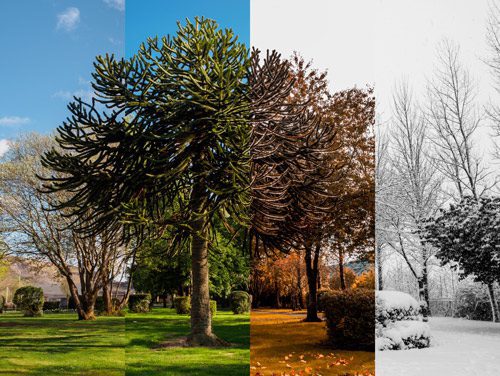Have you ever noticed a slightly negative shift in your mood as summer draws to an end? If you have, you are not alone. Less sunlight, shorter days, colder temperatures, and less time spent outdoors causes many people to feel exhausted, depressed, and irritable. However, it’s not just the transition from warm, sunny, summer days to the darker, drab days of winter that affects most people’s mood: it’s the change from any season to the next. For anyone with a drug or alcohol addiction, seasonal changes can have a direct impact on their recovery.
Dealing with Seasonal Triggers
For many people with a substance use disorder, one of the hardest aspects of recovery is learning how to deal with triggers. Although the transitioning of the seasons seems routine for most people, the change can cause those in recovery to feel unbalanced, making it a vulnerable time. Each new season may bring associations and memories with it, reminding the person of old habits, old friends, and how they used to behave during that time of the year.
For example, as spring turns into summer the thoughts of people in recovery might go to having a few margaritas or beers to relax and get cool. Some people may remember summer as a time of parties or hanging out with friends at a bar. For these people, maintaining their sobriety during this time of year can be very stressful as they are faced with more triggers, temptations, and intense cravings.
The transition from fall into winter is also a stressful and difficult time for many people in recovery. The holidays are especially hard for some as they are faced with strong cravings at holiday parties and get-togethers, while also often having to deal with relationship problems and family issues. In some areas of the country, harsh cold weather and shorter days force many people to spend more time indoors. Whether people are struggling with an addiction or not, winter can be a depressing time of year. Approximately 14 percent of people experience the winter blues, and 6 percent experience seasonal affective disorder, commonly referred to as SAD.
Seasonal Affective Disorder (SAD)
Seasonal affective disorder is a type of depression directly related to the transitioning of the seasons. Most people that are affected by SAD have symptoms that begin in the fall and continue throughout the winter. It is also possible, but not as common, to experience the symptoms of SAD in the spring and early summer.
The symptoms of SAD start out mild and intensify as the season progresses. During that time people experience depression almost every day for most of the day. They may have frequent thoughts of death or suicide. They have a low energy level, problems concentrating, changes in appetite, and loss of interest in activities and hobbies they once enjoyed.
People who experience fall and winter SAD typically experience low energy or tiredness, oversleeping, and weight gain because of cravings for high-carbohydrate foods. People who experience SAD in the spring or summer are more likely to experience anxiety or agitation, weight loss due to loss of appetite, and insomnia or other problems sleeping.
Ways to Cope with Seasonal Changes
Since the changing of the seasons can so greatly affect mood, a person in recovery must find ways to keep their moods stable during these times. The following suggestions will help boost your mood and make the transitioning of the seasons less of a danger to your recovery.
- Exercise: Whether you go to the gym or take a dance class, the positive effects of regularly exercising your body are numerous both mentally and physically.
- Make good food choices: Cold, gloomy weather can lead a person to make poor diet choices. It is normal to want warm comfort food during the cold months because certain body chemicals, including serotonin, are affected by the lack of sunlight. Your body naturally craves carbohydrates, which help to restore the normal levels of serotonin. Work on making healthy food choices and you will feel better physically and mentally.
- Be prepared: The transitioning of the seasons is not going to stop, so have healthy coping mechanisms in place to reduce the stressors. By knowing the risks ahead of time, you will be better able to accept your changes in mood instead of being thrown off track by them.
Getting Help
Sometimes when a person is suffering from an addiction to drugs or alcohol, they do not know where to get help. If you or a loved one need guidance, call and speak to a professional at Canyon Vista Recovery Center in Mesa, Arizona. You will find the answers you need and can begin your journey to a clean and sober life.





